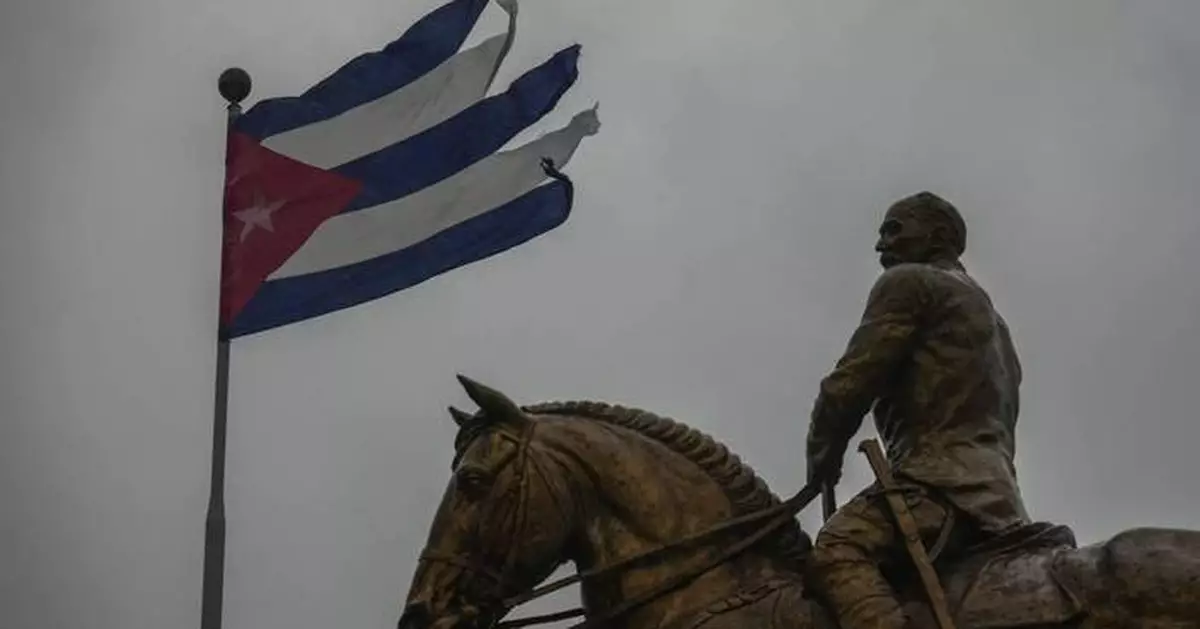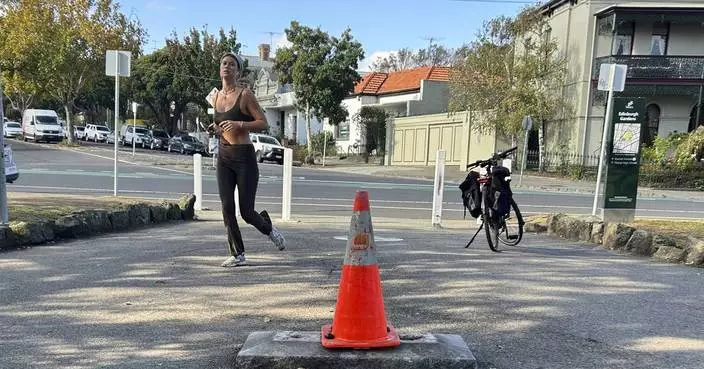HAVANA (AP) — Cuba was left reeling Thursday after a fierce Category 3 hurricane ripped across the island, destroying hundreds of homes, knocking out the country’s power grid and damaging other infrastructure.
No fatalities were immediately reported in Cuba, and Hurricane Rafael had weakened to a Category 2 storm as it swirled across the gulf toward Mexico where heavy rains were expected in the coming days.
Click to Gallery
Children wade through a flooded street after the passing of Hurricane Rafael in Batabano, Cuba, Thursday, Nov. 7, 2024. (AP Photo/Ramon Espinosa)
Residents cycle past homes damaged when Hurricane Rafael passed through Batabano, Cuba, Thursday, Nov. 7, 2024. (AP Photo/Ramon Espinosa)
Debris from a building damaged by the passage of Hurricane Rafael covers the street in Havana, Cuba, Thursday, Nov. 7, 2024. (AP Photo/Ariel Ley)
Residents charge their devices after Hurricane Rafael caused partial outages throughout Havana, Cuba Thursday, Nov. 7, 2024. (AP Photo/Ariel Ley)
A man pushes his pig back home after taking it to higher ground after Hurricane Rafael passed through Batabano, Cuba, Thursday, Nov. 7, 2024. (AP Photo/Ramon Espinosa)
A fallen palm tree is held by the power lines it brought down after Hurricane Rafael passed through Havana, Cuba, Thursday, Nov. 7, 2024. (AP Photo/Ariel Ley)
Residents wade through a flooded street after the passing of Hurricane Rafael in Batabano, Cuba, Thursday, Nov. 7, 2024. (AP Photo/Ramon Espinosa)
A youth plays in a flooded street after the passing of Hurricane Rafael in Batabano, Cuba, Thursday, Nov. 7, 2024. (AP Photo/Ramon Espinosa)
Madeleine Mur carries her dog through a flooded street after Hurricane Rafael passed through Batabano, Cuba, Thursday, Nov. 7, 2024. (AP Photo/Ramon Espinosa)
Residents ride through a flooded street on a horse-drawn cart after Hurricane Rafael passed through Batano, Cuba, Thursday, Nov. 7, 2024. (AP Photo/Ramon Espinosa)
Children wade through a flooded street after the passing of Hurricane Rafael in Batabano, Cuba, Thursday, Nov. 7, 2024. (AP Photo/Ramon Espinosa)
A man makes his way through trees brought down by Hurricane Rafael along the road leading to San Antonio de los Banos, Cuba, Thursday, Nov. 7, 2024. (AP Photo/Ramon Espinosa)
People drive along a road littered with fallen power lines after the passing of Hurricane Rafael in San Antonio de los Banos, Cuba, Thursday, Nov. 7, 2024. (AP Photo/Ramon Espinosa)
Residents wade through a flooded street after the passing of Hurricane Rafael in Batabano, Cuba, Thursday, Nov. 7, 2024. (AP Photo/Ramon Espinosa)
Waves break on the beach during the passing of Hurricane Rafael in Havana, Cuba, Wednesday, Nov. 6, 2024. (AP Photo/Ramon Espinosa)
A man walks through the wind and rain brought by Hurricane Rafael in Havana, Cuba, Wednesday, Nov. 6, 2024. (AP Photo/Ramon Espinosa)
A man walks through the wind and rain brought by Hurricane Rafael in Havana, Cuba, Wednesday, Nov. 6, 2024. (AP Photo/Ramon Espinosa)
People at a bus stop shield themselves with cardboard amid wind and rain during the passage of Hurricane Rafael in Havana, Cuba, Wednesday, Nov. 6, 2024. (AP Photo/Ramon Espinosa)
A man walks through the wind and rain brought by Hurricane Rafael in Havana, Cuba, Wednesday, Nov. 6, 2024. (AP Photo/Ramon Espinosa)
A Cuban flag shredded by the winds of Hurricane Rafael flies above the statue of General Calixto Garcia in Havana, Cuba, Wednesday, Nov. 6, 2024. (AP Photo/Ramon Espinosa)
Rafael crossed a western portion of Cuba on Wednesday evening about 75 kilometers (45 miles) west of Havana, where José Ignacio Dimas returned home from his night shift as a security guard to find his apartment building in the historic center of the city had collapsed.
“The entire front wall of the building fell,” José Ignacio Dimas said in a tight voice as he scanned the damage early Thursday. Like many buildings in the capital, it was aging and lacked maintenance.
More than 461 homes collapsed because of the hurricane, Cuban authorities said. More than 283,000 people from across the country had been evacuated from their homes, 98,300 of which were in Havana, according to authorities.
Streets across the western swath of the country were riddled with utility poles, wires and trees.
In Havana, residents picked up what debris they could, but huge trees and fallen telephone lines lined the ground, blocking traffic. Concerned about food going bad due to blackouts, a group of residents opened an informal soup kitchen.
"If we don’t work together as neighbors, nobody does it,” said Ariel Calvo, who was helping to shovel debris Thursday morning.
Lázaro Guerra, electricity director for the Ministry of Energy and Mines, said power had been partially restored in the island’s western region and that generation units were powering back up. But he warned that restoring power would be slow-going as crews took safety precautions.
On Thursday morning, the hurricane was located about 260 miles (420 kilometers) west-northwest of Havana. It had maximum sustained winds of 105 mph (165 kph) and was moving west-northwest at 9 mph (15 kph).
Earlier in the week, Rafael brushed past Jamaica and battered the Cayman Islands, downing trees and power lines and unleashing heavy flooding in some areas.
Authorities in Jamaica are searching for a couple last seen inside a car that was swept away by floodwaters, police told Radio Jamaica News.
Thousands of customers in Jamaica and Little Cayman remained without power as crews worked to restore electricity after the storm.
Rafael was expected to keep weakening as it spins over open waters and heads toward northern Mexico, although the hurricane center warned there was “above average uncertainty” in the storm's future track.
Meanwhile, many Cubans were left picking up the pieces from Wednesday night, after a rocky few weeks in the Caribbean nation. In October, the island was hit by a one-two punch. First, it was hit by island-wide blackouts stretching on for days, a product of the island’s energy crisis. Shortly after, it was slapped by powerful hurricane that struck the eastern part of the island and killed at least six people.
The disasters have stoked discontent already simmering in Cuba amid an ongoing economic crisis, which has pushed many to migrate from Cuba.
Classes and public transport were suspended on parts of the island and authorities canceled flights in and out of Havana and Varadero. Thousands of people in the west of the island had been evacuated as a preventative measure.
Rafael is the 17th named storm of the season.
The National Oceanic and Atmospheric Administration predicted the 2024 hurricane season was likely to be well above average, with between 17 and 25 named storms. The forecast called for as many as 13 hurricanes and four major hurricanes.
An average Atlantic hurricane season produces 14 named storms, seven of them hurricanes and three major hurricanes.
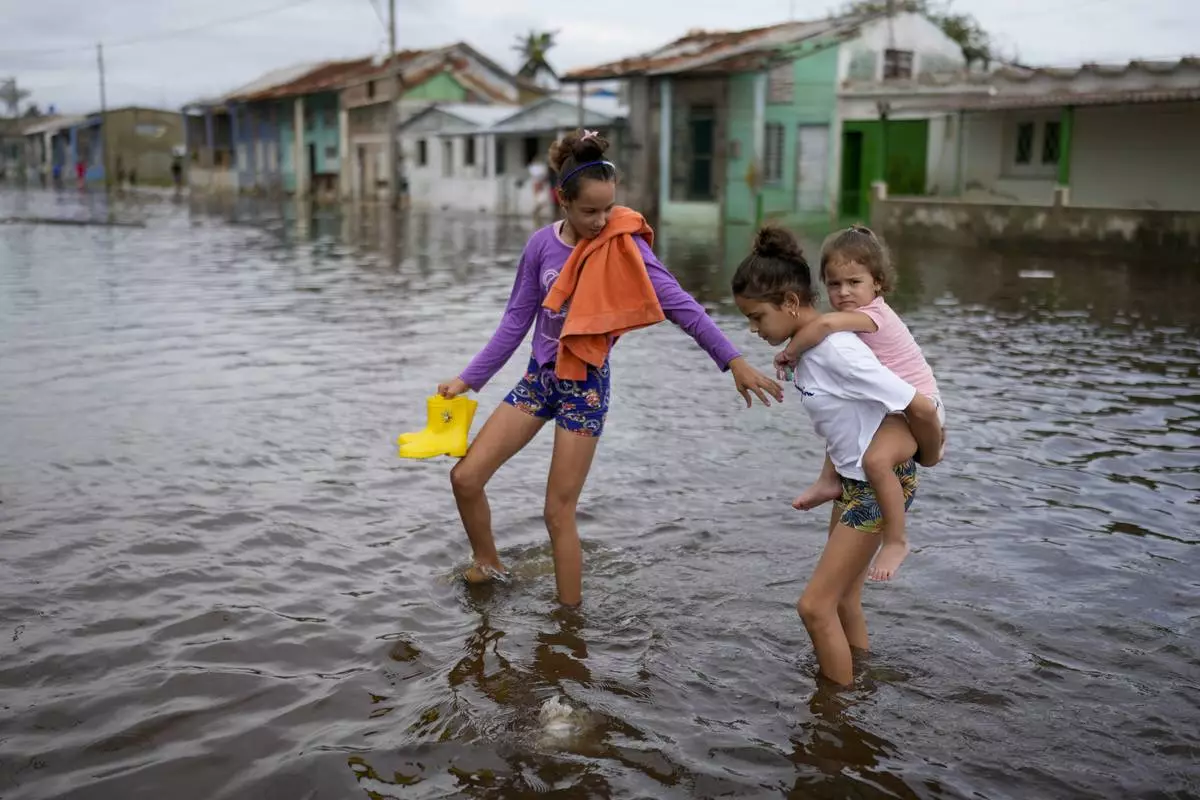
Children wade through a flooded street after the passing of Hurricane Rafael in Batabano, Cuba, Thursday, Nov. 7, 2024. (AP Photo/Ramon Espinosa)
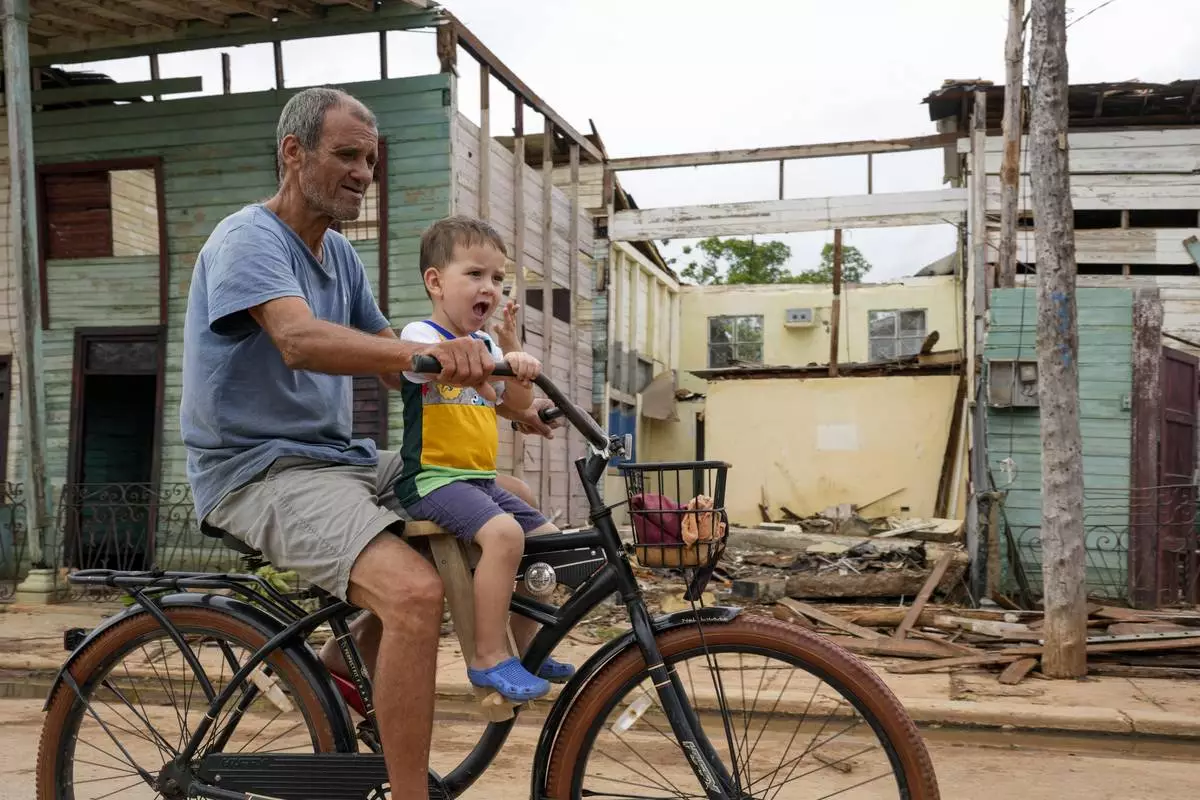
Residents cycle past homes damaged when Hurricane Rafael passed through Batabano, Cuba, Thursday, Nov. 7, 2024. (AP Photo/Ramon Espinosa)
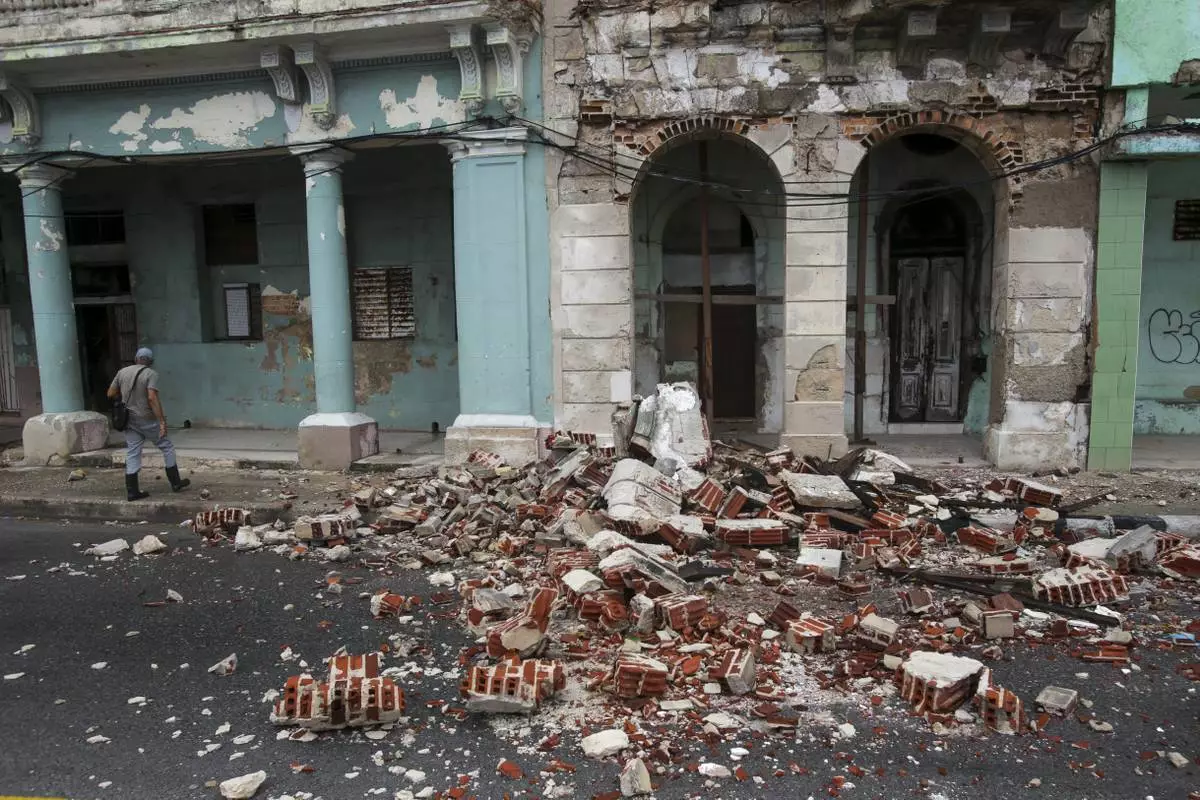
Debris from a building damaged by the passage of Hurricane Rafael covers the street in Havana, Cuba, Thursday, Nov. 7, 2024. (AP Photo/Ariel Ley)
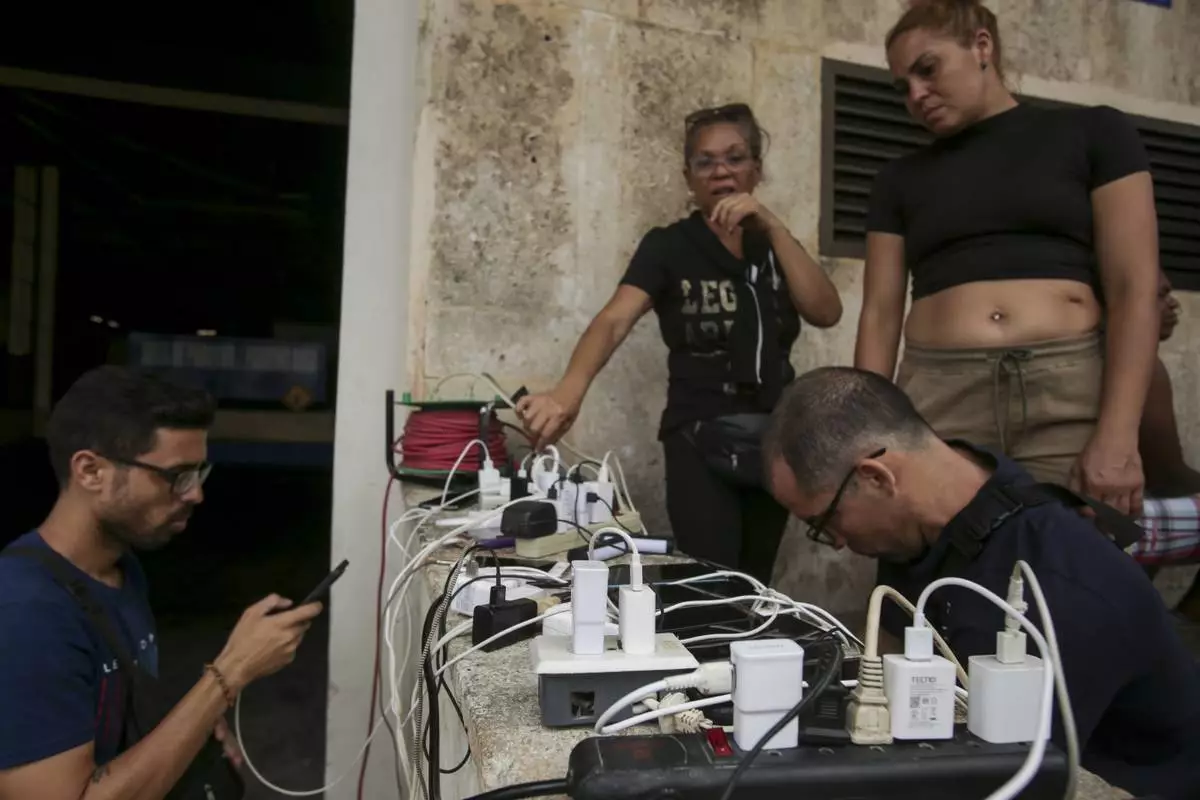
Residents charge their devices after Hurricane Rafael caused partial outages throughout Havana, Cuba Thursday, Nov. 7, 2024. (AP Photo/Ariel Ley)

A man pushes his pig back home after taking it to higher ground after Hurricane Rafael passed through Batabano, Cuba, Thursday, Nov. 7, 2024. (AP Photo/Ramon Espinosa)
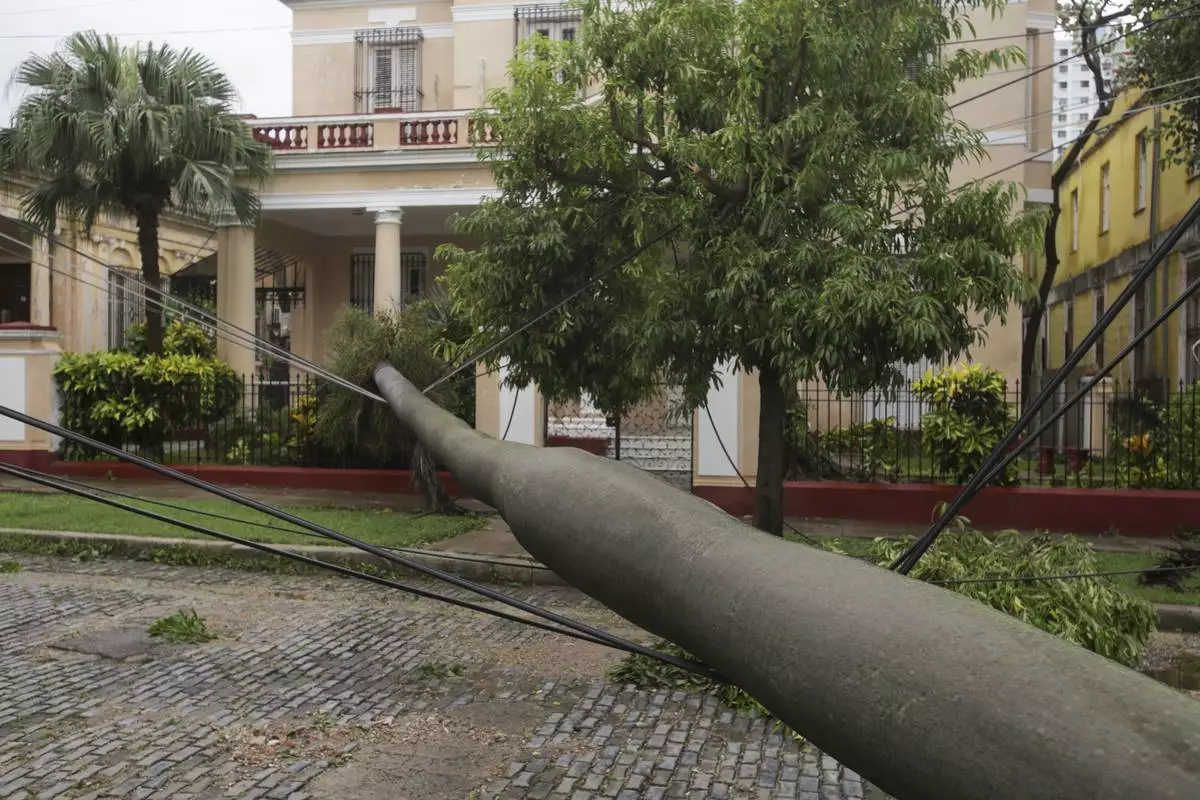
A fallen palm tree is held by the power lines it brought down after Hurricane Rafael passed through Havana, Cuba, Thursday, Nov. 7, 2024. (AP Photo/Ariel Ley)
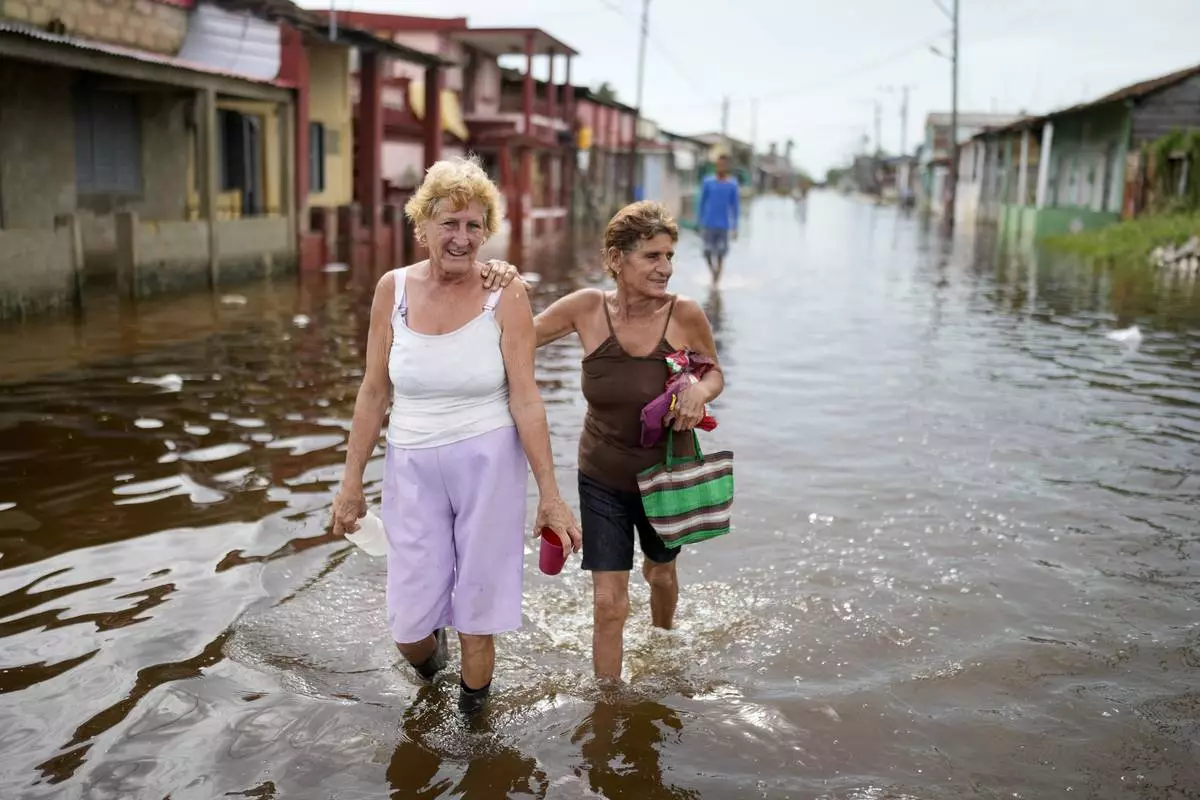
Residents wade through a flooded street after the passing of Hurricane Rafael in Batabano, Cuba, Thursday, Nov. 7, 2024. (AP Photo/Ramon Espinosa)
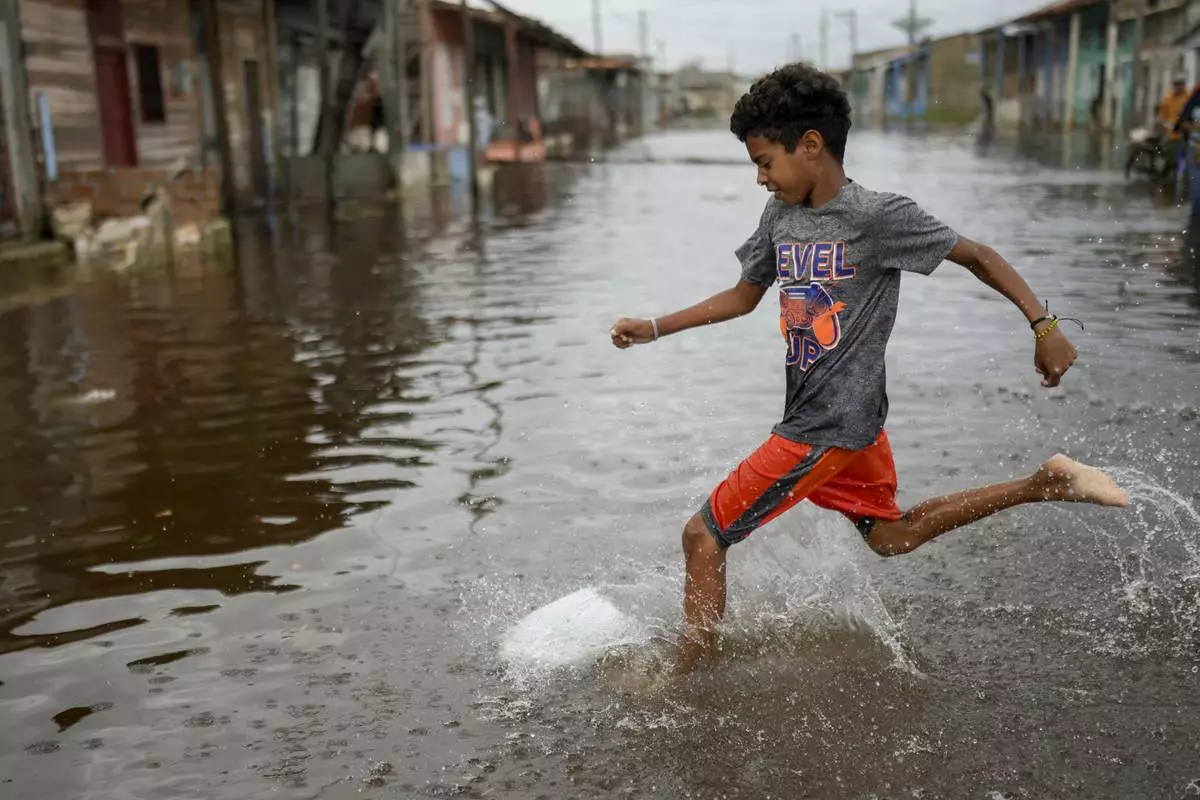
A youth plays in a flooded street after the passing of Hurricane Rafael in Batabano, Cuba, Thursday, Nov. 7, 2024. (AP Photo/Ramon Espinosa)
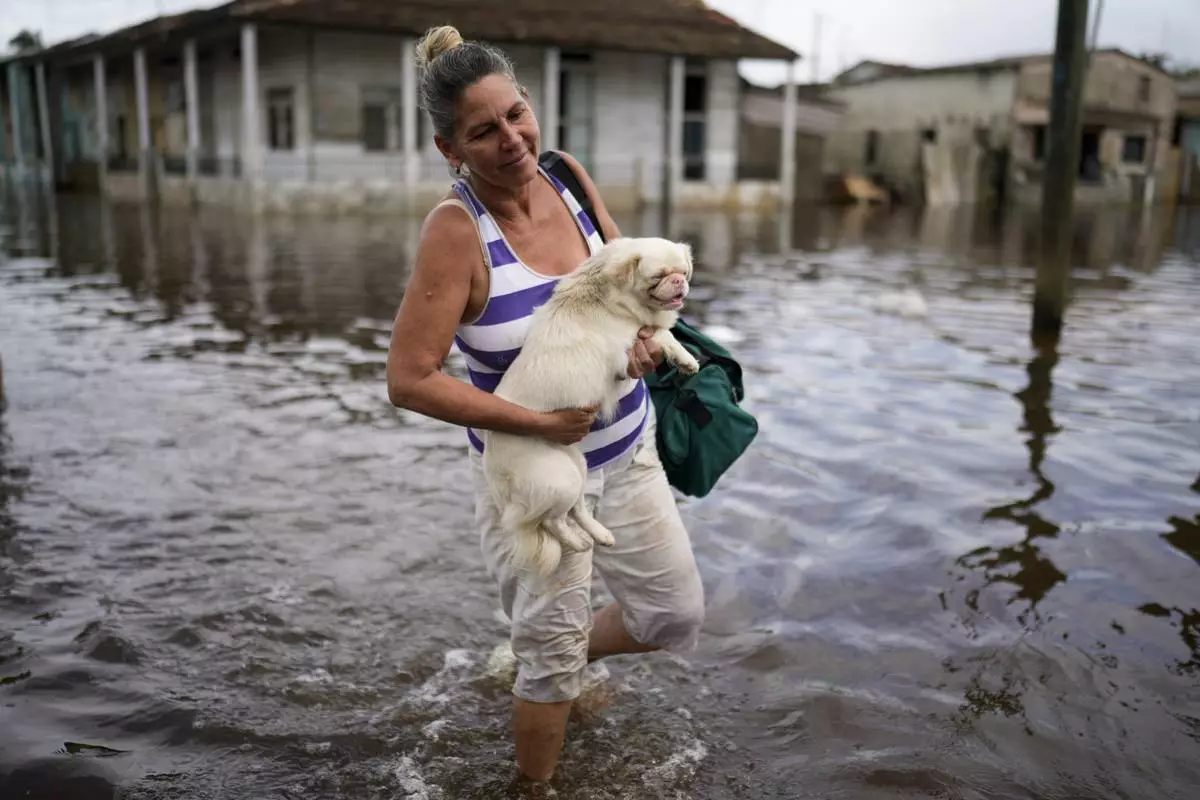
Madeleine Mur carries her dog through a flooded street after Hurricane Rafael passed through Batabano, Cuba, Thursday, Nov. 7, 2024. (AP Photo/Ramon Espinosa)
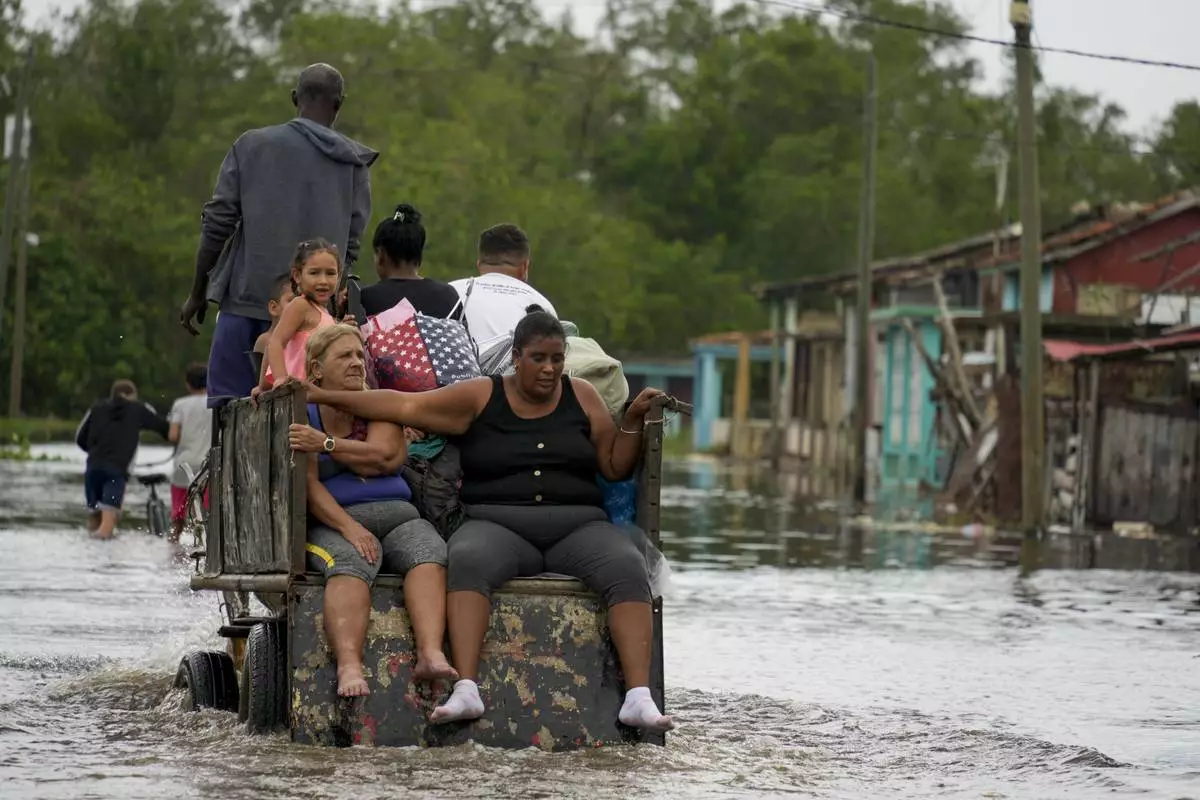
Residents ride through a flooded street on a horse-drawn cart after Hurricane Rafael passed through Batano, Cuba, Thursday, Nov. 7, 2024. (AP Photo/Ramon Espinosa)
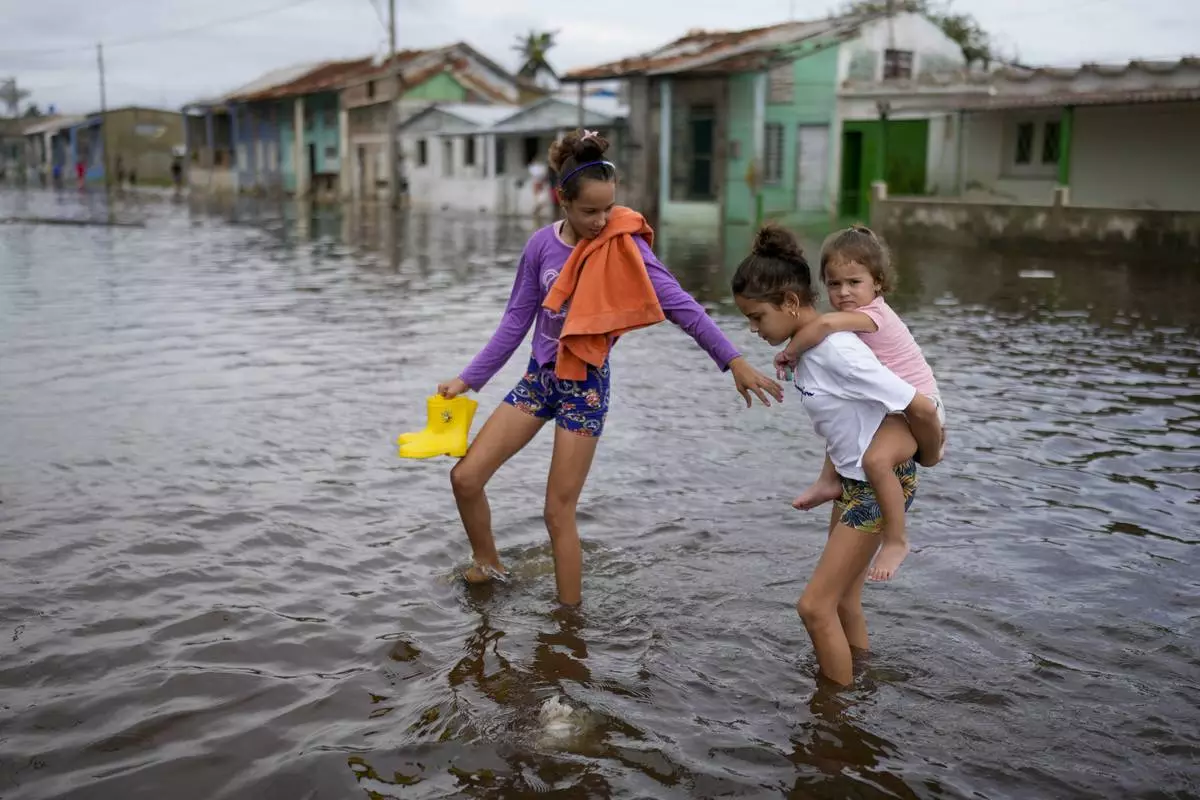
Children wade through a flooded street after the passing of Hurricane Rafael in Batabano, Cuba, Thursday, Nov. 7, 2024. (AP Photo/Ramon Espinosa)
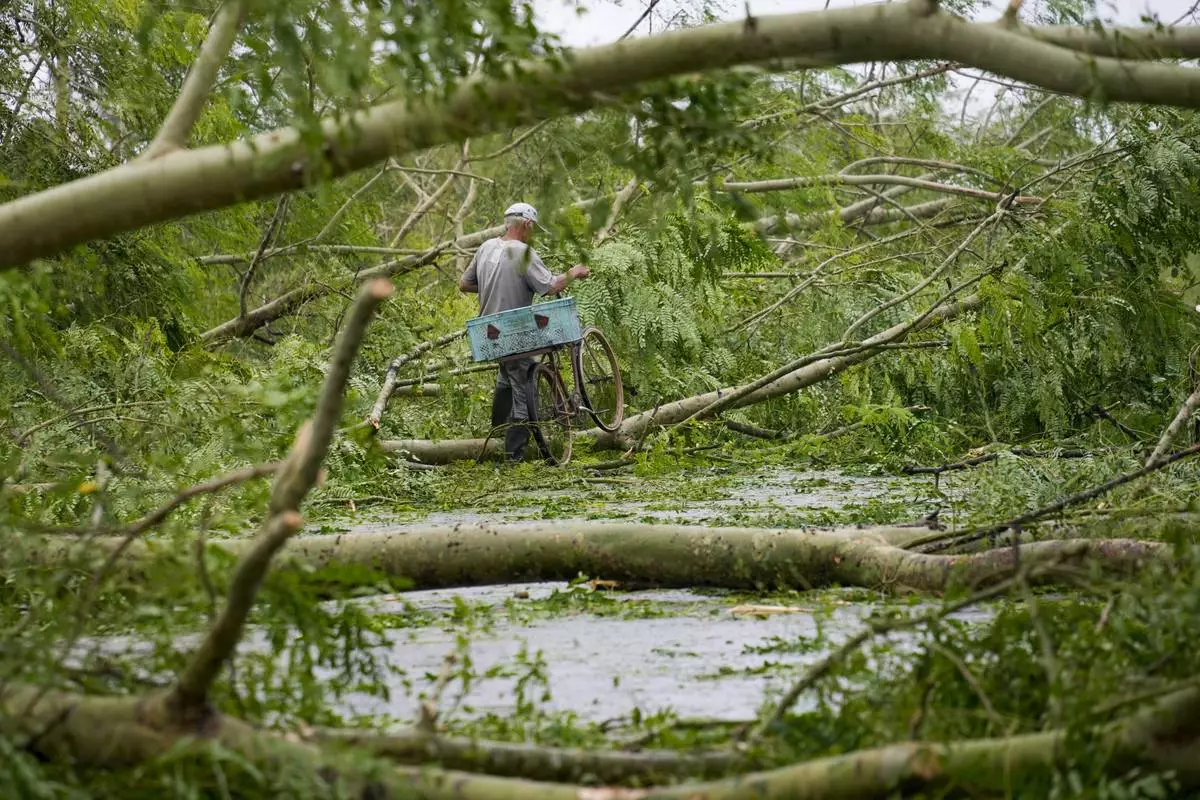
A man makes his way through trees brought down by Hurricane Rafael along the road leading to San Antonio de los Banos, Cuba, Thursday, Nov. 7, 2024. (AP Photo/Ramon Espinosa)

People drive along a road littered with fallen power lines after the passing of Hurricane Rafael in San Antonio de los Banos, Cuba, Thursday, Nov. 7, 2024. (AP Photo/Ramon Espinosa)
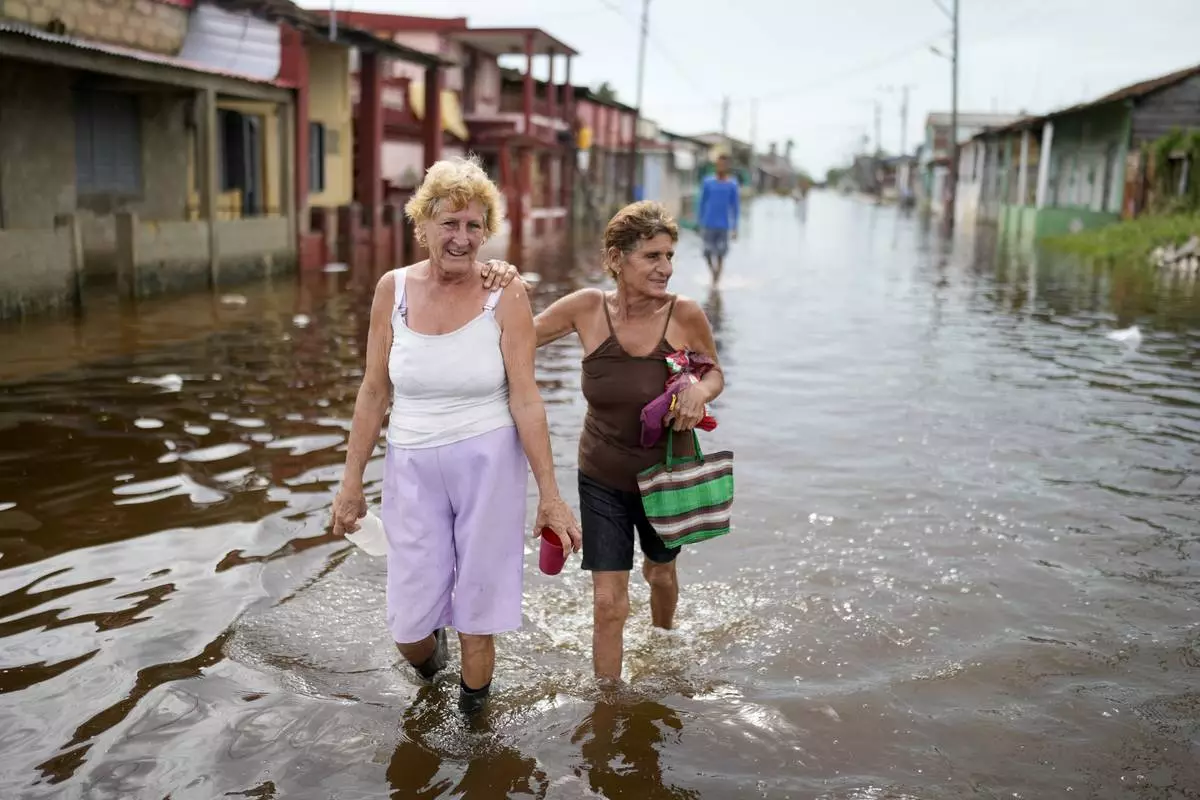
Residents wade through a flooded street after the passing of Hurricane Rafael in Batabano, Cuba, Thursday, Nov. 7, 2024. (AP Photo/Ramon Espinosa)
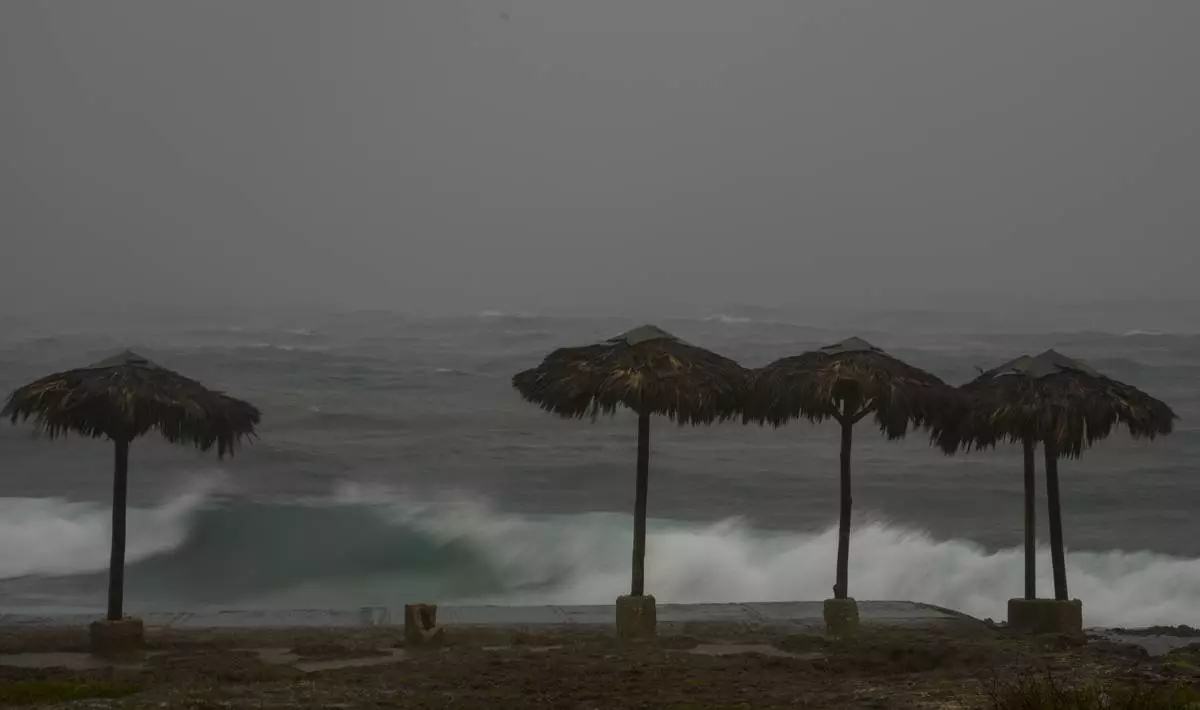
Waves break on the beach during the passing of Hurricane Rafael in Havana, Cuba, Wednesday, Nov. 6, 2024. (AP Photo/Ramon Espinosa)
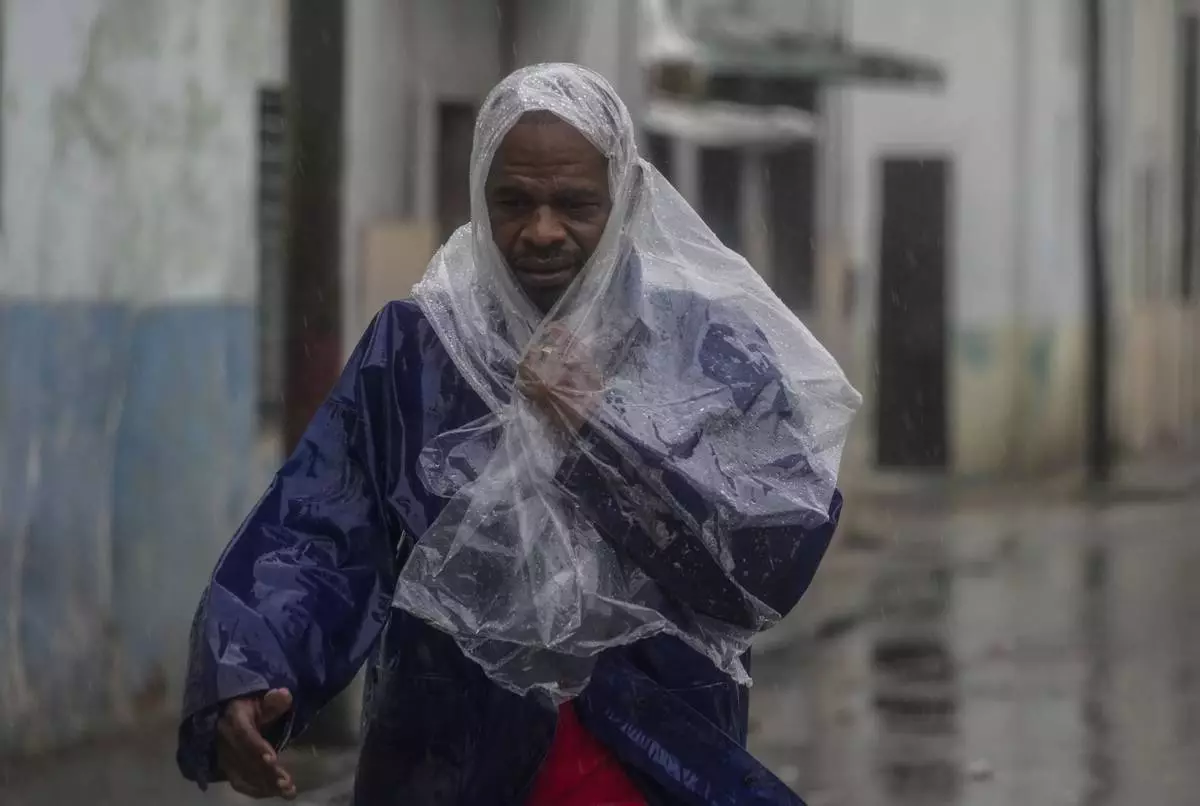
A man walks through the wind and rain brought by Hurricane Rafael in Havana, Cuba, Wednesday, Nov. 6, 2024. (AP Photo/Ramon Espinosa)
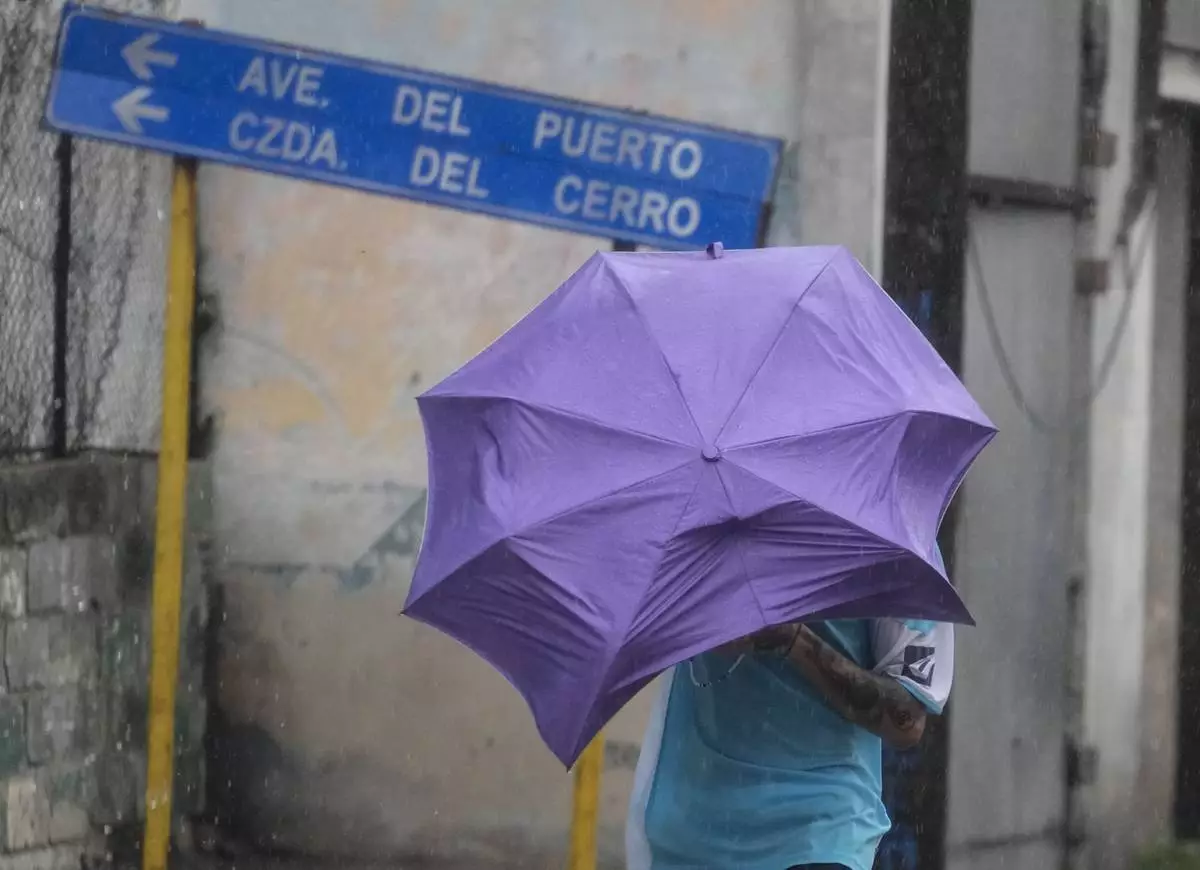
A man walks through the wind and rain brought by Hurricane Rafael in Havana, Cuba, Wednesday, Nov. 6, 2024. (AP Photo/Ramon Espinosa)
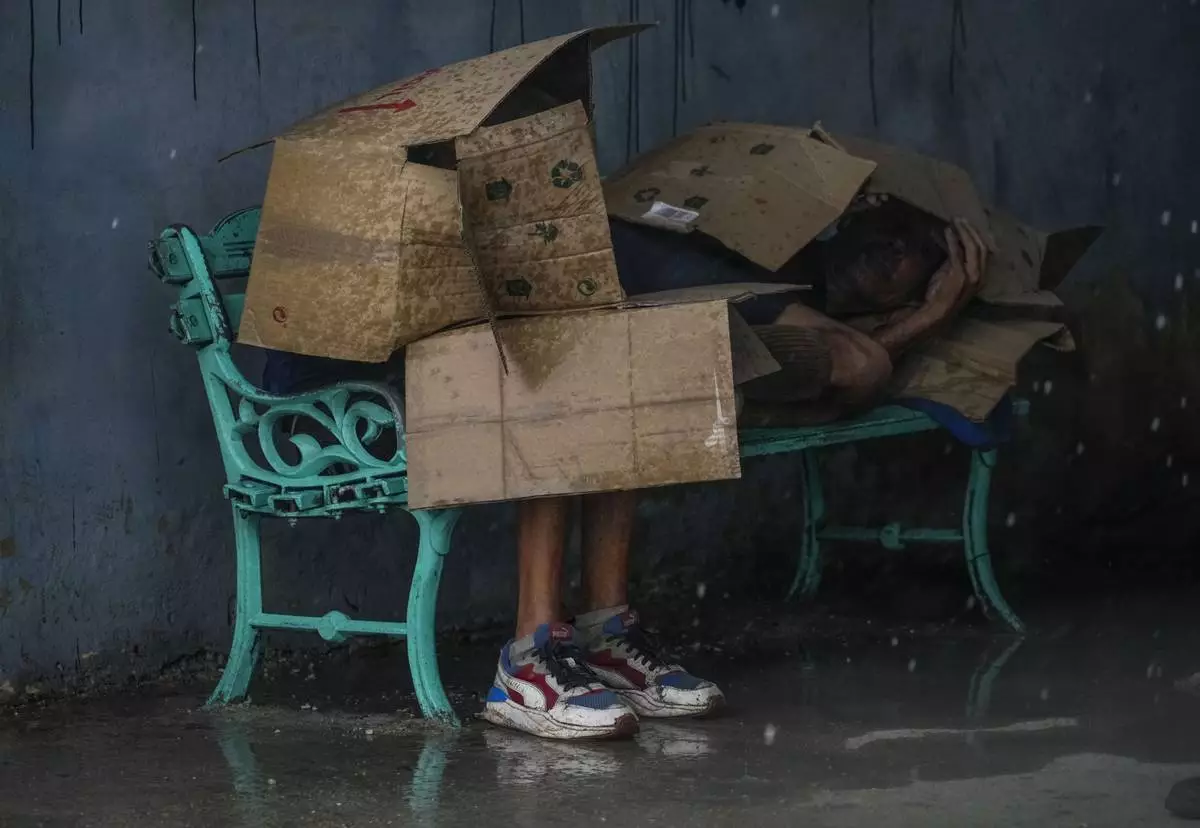
People at a bus stop shield themselves with cardboard amid wind and rain during the passage of Hurricane Rafael in Havana, Cuba, Wednesday, Nov. 6, 2024. (AP Photo/Ramon Espinosa)
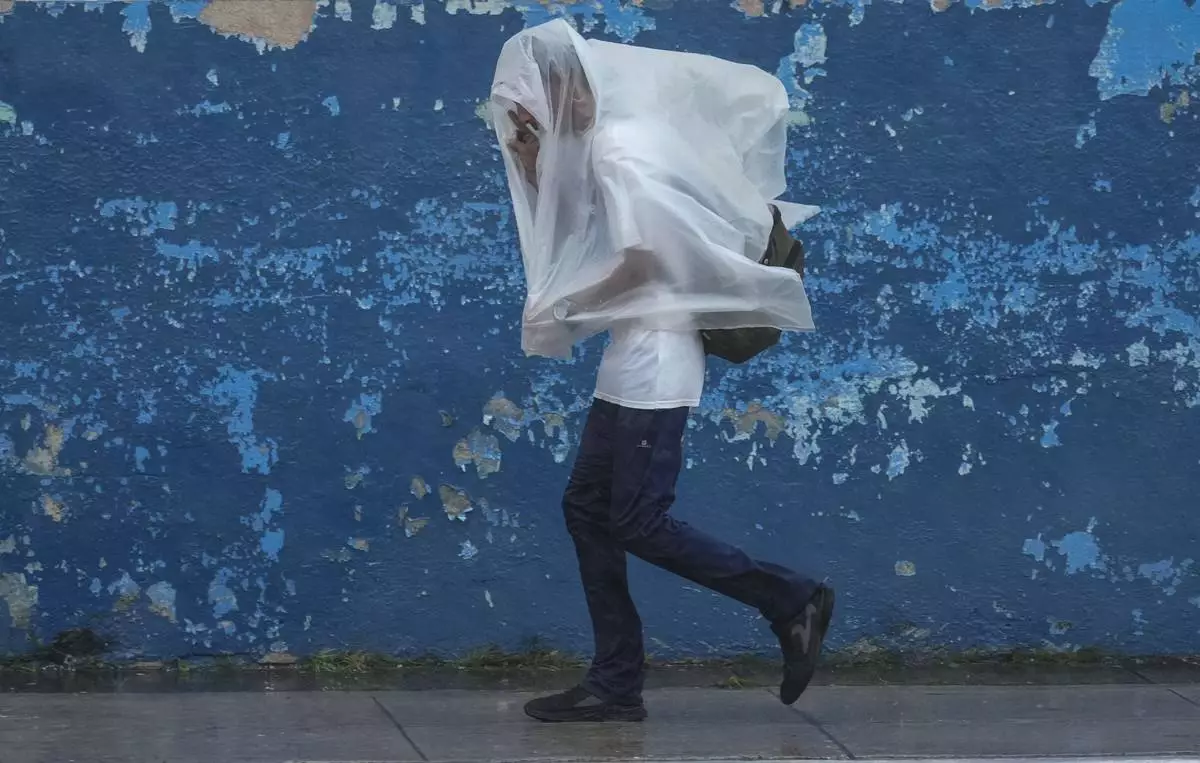
A man walks through the wind and rain brought by Hurricane Rafael in Havana, Cuba, Wednesday, Nov. 6, 2024. (AP Photo/Ramon Espinosa)
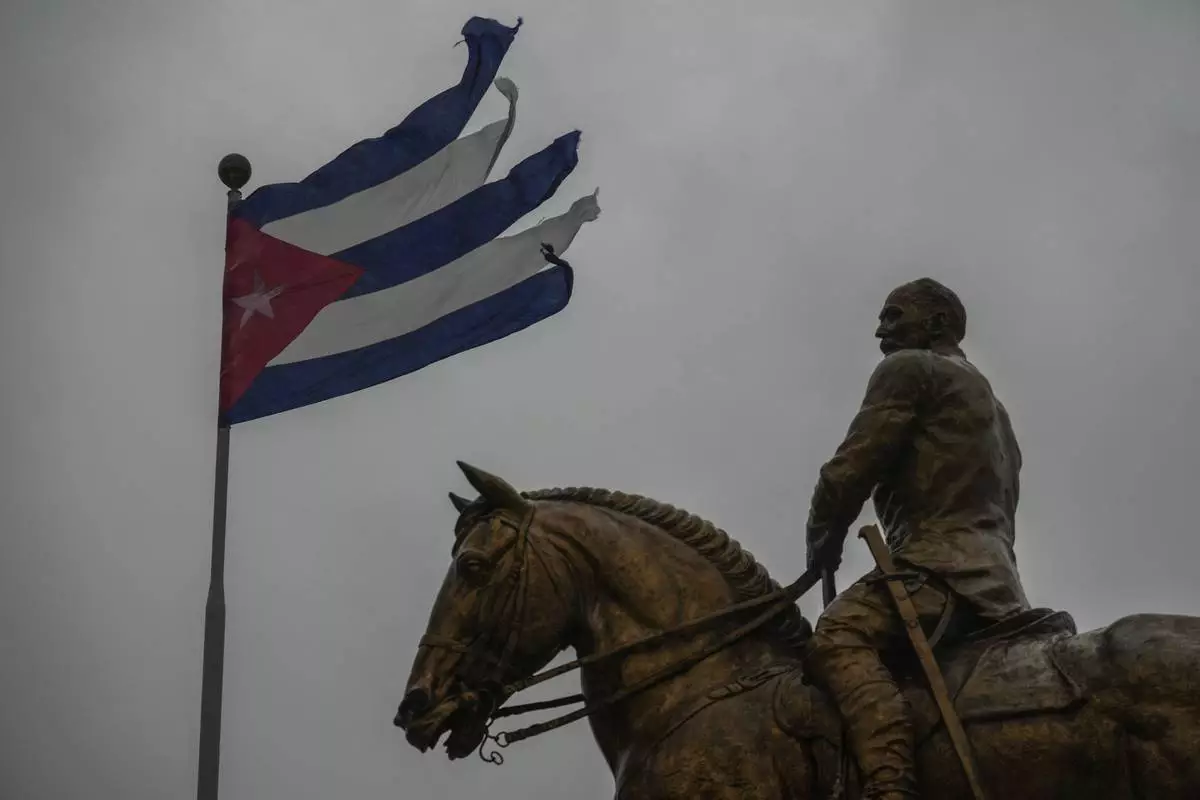
A Cuban flag shredded by the winds of Hurricane Rafael flies above the statue of General Calixto Garcia in Havana, Cuba, Wednesday, Nov. 6, 2024. (AP Photo/Ramon Espinosa)
MELBOURNE, Australia--(BUSINESS WIRE)--May 14, 2025--
Compumedics Limited (ASX: CMP), a world leading supplier of innovative medical technology for patient monitoring, has in collaboration with Beijing Fistar and TJNU performed recordings of both adults and children. The site at TJNU is equipped with an Orion LifeSpan™ MEG.
This press release features multimedia. View the full release here: https://www.businesswire.com/news/home/20250514323453/en/
‘Most advanced MEG capability anywhere in the world’
Professor Xuejun Bai is Vice President of TJNU, Head of the MEG Laboratory, Director of the Brain Functional Imaging Centre and former Director of the Chinese Psychological Society. He has published more than 300 scientific papers and has been awarded ten patents. Prof. Bai commented:
“ The Orion LifeSpan MEG recently installed by Compumedics at TJNU has been a revolution in our ability to study mental processes of both children and adults, or even the two simultaneously. The system has already proven itself to be extremely sensitive, accurate and reliable. My team have been hard at work doing MEG measurements, analyzing the resulting data and uncovering new neuroscientific findings. I can say without reservation that the Orion LifeSpan has given TJNU the most advanced MEG capability anywhere in the world.”
Ability to Accurately Scan Both Children and Adults
MEG is a functional neuroimaging technique for mapping brain activity. It uses highly sensitive detectors to record the naturally occurring magnetic fields produced by electrical current flows within the brain. Because magnetic fields drop off very rapidly with distance, the sensors should be as close as possible to the sources of the brain signals. A child’s small head in an adult size helmet results in sensors far from the brain, leading to small signals. A dedicated smaller helmet yields clearer and more accurate data. More precise data always leads to better research understanding and improved patient outcomes.
World’s First Recordings
After installation of the Orion LifeSpan™ MEG at TJNU, a series of measurements were undertaken to demonstrate that the theoretical advantage of the system during pediatric recordings would be borne out in practice.
Founder and Executive Chairman Dr David Burton commented: “These recordings represented the first time a single MEG system had delivered high-quality scans for both children and adults. This breakthrough was at the world’s most advanced MEG lab at TJNU, which is equipped with a Compumedics Orion LifeSpan MEG system.
“Compumedics has invested nearly a decade and many millions of dollars to develop the Orion LifeSpan MEG,” he said. “The system represents a major leap in magnetoencephalography, with dual-helmet capability for pediatric and adult brain scanning, fully integrated with our gold-standard brain analytics CURRY software.
“It’s incredibly rewarding to see these efforts translating into strong initial sales, global interest and the potential for improved brain health, among both children and adults worldwide.”
A four-year-old female was presented with a series of tones and measured with both the adult and pediatric helmet. The results showed significantly stronger detection in the pediatric helmet. Localizations showed more precise determination of where the brain had been activated by the tones. The physics of magnetic field decay and the design philosophy of the Orion LifeSpan™ MEG were confirmed
For more information about this study, the Orion LifeSpan™ MEG and Compumedics, visit:https://www.compumedics.com.au/en/blog/compumedics-demonstrates-worlds-first-adult-and-pediatric-optimized-recordings-from-a-single-meg-system-2/

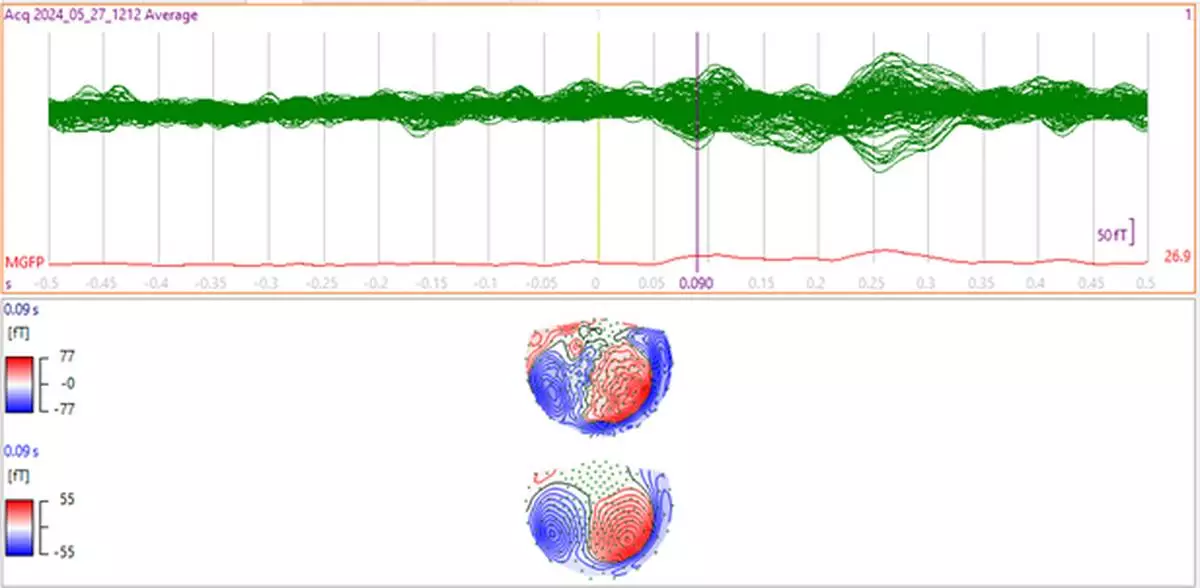
Child in Adult Helmet: The response from the same child measured in the adult MEG helmet. The traces show much lower amplitude and the map is muddied as a result of the lower signal-to-noise ratio.
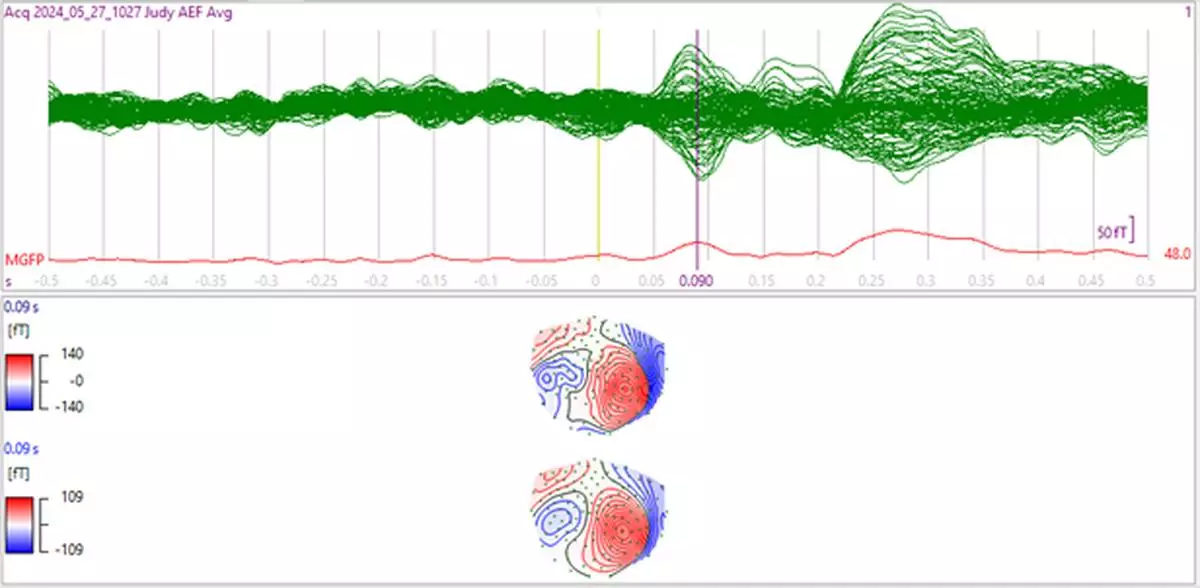
Child in Pediatric Helmet: Green traces show the signals from the MEG sensors during the child’s listening to tones. The stimulus occurs at time 0 and the clear first response peaks about 0.09 seconds later. The upper color map shows the magnetic fields across the entire head during the recording and the lower shows CURRY®’s calculation of dipolar output that would account for the measured signals.

The same child in a helmet optimized for pediatric measurements.

Five-year-old child in an adult sized MEG helmet.

The resulting functional brain image as shown by CURRY software.

Compumedics Orion LifeSpan MEG system during recording.






















